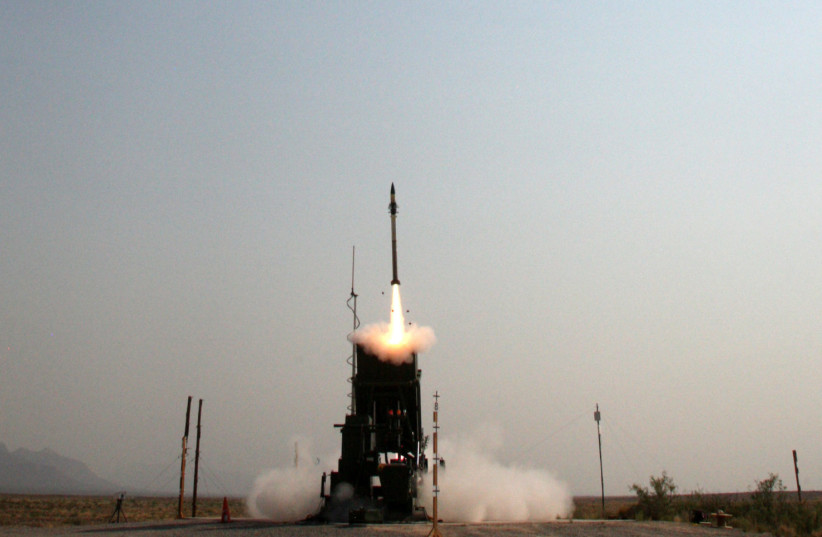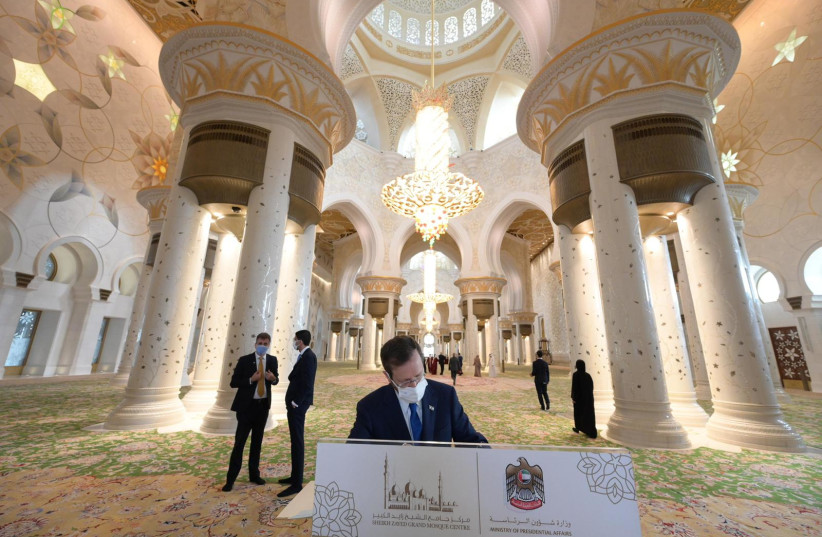The famed Iron Dome system is not the only system that could be on the table.

As rocket and drone attacks against the United Arab Emirates have increased, talks are underway between Israel and several Persian Gulf states to understand what air defense systems are most relevant for the threats that they face.
Though Israel’s famed Iron Dome system has made headlines around the world for its interceptions during the numerous rounds of conflict with the Hamas-run Gaza Strip and has been touted as the system most likely to be sold to countries interested in such platforms, Jerusalem has a variety of air defense systems.
Discussions with the Gulf countries centered around shared threats such as rocket and drone attacks. The discussions allowed Israeli officials to understand that the Jewish State has other systems that may be a better solution to such threats.
Israel, the United Arab Emirates, Bahrain, and a number of other Arab countries signed normalization agreements in 2020 as part of the Abraham Accords, bringing years of covert contacts into the open.
The UAE has faced a number of missile attacks launched by Iran’s Houthi rebels in Yemen in recent weeks, including during the trip of Israel’s President Isaac Herzog to Abu Dhabi and in January that killed three foreign workers.

Other attacks were intercepted by American Patriot systems.
While the UAE has highly formidable medium-to-high altitude air defense systems, following the attacks, both France and the United States announced that they would assist the country in defending against missiles and rockets.
Israel has also offered the UAE support against such threats and Defense Minister Benny Gantz recently returned from a historic trip to Manama where he signed the first Memorandum of Understand with the Kingdom.
The agreement will set a solid security cooperation framework that formalizes defense relations between the two countries, allowing for increased cooperation in various fields such as intelligence sharing,military-to-military training, the cooperation between defense industries and more.
The public meetings, a year after the Abraham Accords were signed, come as tensions with the Islamic Republic are at an all-time high, and missile attacks by their proxies in Yemen and Iraq against the United Arab Emirates have increased.
During his visit, Gantz said that the defense agreement “will contribute to the security of both countries and the stability of the region.”
The systems that may have been discussed include Rafael Advanced Defense System’s SPYDER mobile defense system and Israel Aerospace Industries’s Barak 8 Medium-Range Surface-to-Air Missile system.
The SPYDER, which was on display at IDEX 2021 late last year, has already been purchased by several other countries. The mobile system incorporates Rafael’s advanced Python-5 and I-Derby missiles to provide short, medium, and long-range protection against a range of threats including attack aircraft, cruise missiles, unmanned aerial vehicles, stand-off weapons and more.
The system, which uses electro-optical observation payload and wireless data link communication, can engage multiple threats simultaneously up to 80 kilometers away in all weather conditions.
SPYDER has been sold to several international customers, including the Czech Republic.
The Barak-8 MR-SAM system is able to shoot down enemy aircraft at a range of 50-70 kilometers, the system is designed to defend naval vessels against a myriad of short-to-long range airborne threats like incoming missiles, planes, and drones at both low or high altitudes.
It is jointly developed by India’s Defence Research and Development Organisation (DRDO) in close collaboration with Israel’s Israel Aircraft Industry (IAI)’s Elta, RAFAEL, and additional companies in both countries are used by Israel’s navy as well as by India’s naval, air and ground forces.
The system integrates several advanced state-of-the-art systems including a digital radar, a command and control system, tracking radar launchers, interceptors with advanced homing radio frequency (RF) seekers, data link, and system-wide connectivity. It is also able to engage multiple targets simultaneously in severe saturation scenarios and can be operated in all types of weather.
There are also reports of Morroco being interested in the system.
In addition, there are also several Israeli anti-drone systems that may be on the table, including Rafael’s Drone Dome which is described by the company as an “end-to-end system designed to provide effective airspace defense against hostile drones used by terrorists to perform aerial attacks, collect intelligence, and other intimidating activities.”
The all-weather system has a 360-degree circular coverage and is designed to rapidly detect by an electro-optical/infrared sensor and radar, track and neutralize all types of UAVs that have been classified as threats to a distance of up to 10 km.
It can neutralize the drone by jamming radio frequencies to prevent the drone from being able to move, a high-pressure water gun or it can be equipped with a laser beam to destroy the hostile aerial vehicles depending on the threat.
Content retrieved from: https://www.jpost.com/israel-news/article-695647.